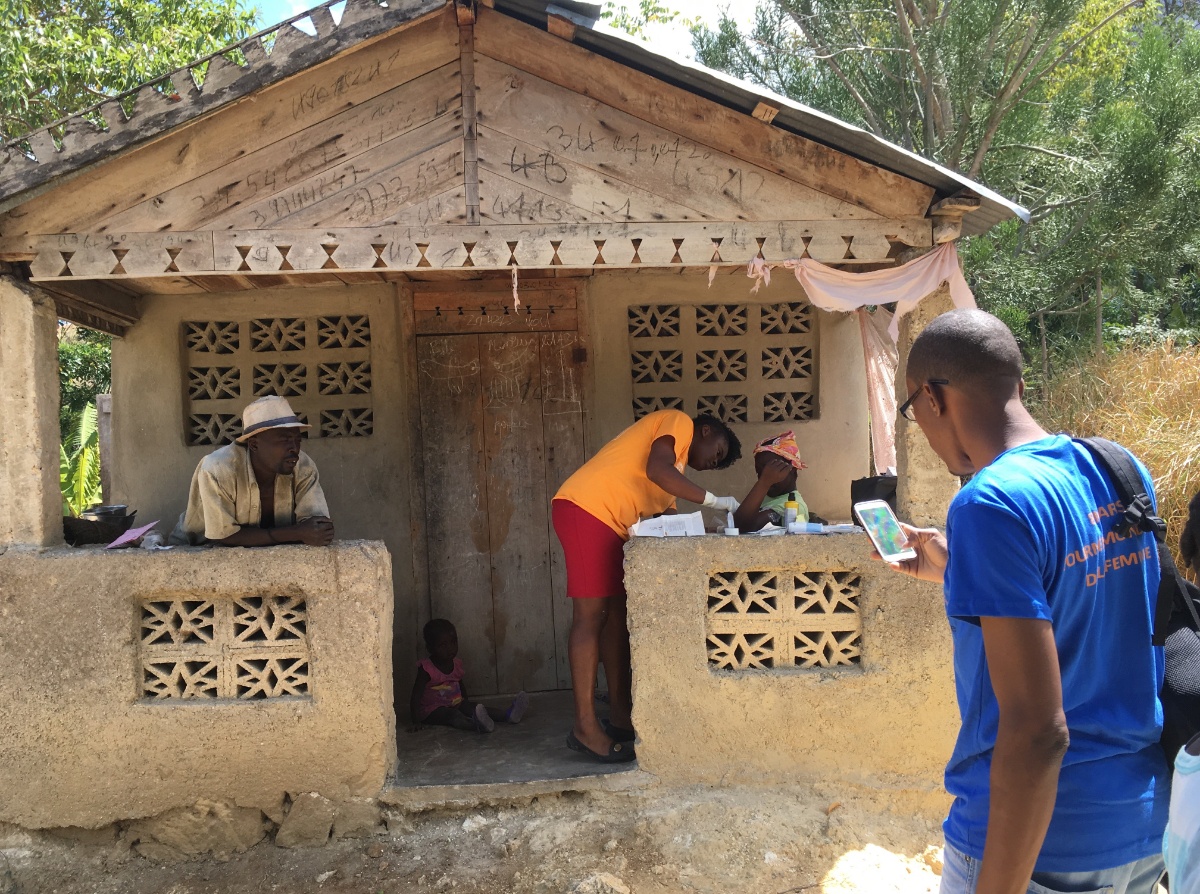Innovation: Contraception Program Empowers Women in Haiti
Posted on Mar 19, 2019

More training for nurses and greater access to family planning services has resulted in significantly more new mothers leaving a Haiti hospital with long-term contraception, a fact that could lead to safer pregnancies and fewer maternal deaths.
A recent Partners In Health study found that over just three months at the PIH-supported University Hospital at Mirebalais, in Haiti’s Central Plateau, increasing contraceptive education for nurses and providing new mothers with more family planning access and options led to “a great improvement in the percentage of women who had delivered in the maternity ward accepting a long-acting contraception method,” such as the Jadelle implant, which can be left in a patient’s upper arm for five years.
The rate of women discharged from the hospital with long-acting contraception has risen from 5 percent to 20 percent as a result, according to the study, published in December by The British Medical Journal.
That’s good news in Haiti--especially on the Central Plateau, where the fertility rate is nearly five children per mother. Previous studies have shown that the more pregnancies a woman has, the greater her risk for complication or death, especially in countries with limited resources.
Across Haiti, about 360 mothers die out of every 100,000 live births, a high maternal mortality rate compared to 14 deaths per 100,000 in the United States, and 39 deaths per 100,000 in Cuba, according to World Bank data.
Empowering women with more options to plan their pregnancies, and control their health overall, can help turn that tide.
“There’s a direct link between family planning and maternal mortality,” said Meredith Casella Jean-Baptiste, a co-author of the study and the women’s health coordinator for Zanmi Lasante, as PIH is known in Haiti. “Maternal mortality can be reduced by up to 44 percent when women have access to family planning methods and by up to 60 percent when all their contraceptive needs are met.”
University Hospital is a 300-bed teaching facility that serves a population of about 189,000. In its maternity ward, about 375 women give birth per month.
Prior to the study, the hospital didn’t have protocols for contraceptive education and family planning services for new mothers, said Jean-Baptiste, who is also a midwife. The majority of women waited six weeks after delivery before coming back to the hospital for family planning, if they were able to come back at all, and education was sparse.
“We wanted to give women options before they left the hospital,” Jean-Baptiste said.
That effort pushed forward in early 2016 when the World Health Organization changed its eligibility criteria for some long-acting contraceptive implants, saying the benefits outweighed the risks for women immediately after delivery and while breastfeeding. The change increased access to implants, such as the Jadelle, and spurred University Hospital’s training and education study.
“That really opened the door for us for exploring how we could best put that in place here,” Jean-Baptiste said. “There had been a number of barriers for women trying to access that kind of family planning.”
Beginning in March 2016, University Hospital staff implemented standard protocols for contraceptive education and expanded training for nearly 30 staff members, including nurses, midwives, and residents in the internal medicine ward. The idea was to ensure that every woman, regardless of whether or not she was a mother, could access family planning methods during her hospital visit.
Stephanie Louis, a study co-author and midwife who has worked at University Hospital since 2013, said staff are now more focused on patient awareness of family planning options in the maternity ward, as well as in pediatrics and internal medicine.
Patients “feel a sense of pride, as if it gives them a new direction in their lives,” Louis said, once staff have addressed their questions about long-lasting contraception.
“New moms, in particular young mothers who accept a long-term family planning method, are always thrilled to make a decision such as this,” she added. “They say it will allow them to have more time for themselves and other members of the family, or simply allow them to finish their education [for those who are still in school].”
The study’s authors believed that this approach can be replicated in other institutions throughout Haiti, and beyond, to impact high maternal mortality rates.

For its part, PIH supports 12 hospitals and clinics in some of the poorest, most remote regions of Haiti. Jean-Baptiste said all of those facilities now conduct outreach about family planning services, visiting homes, churches, community centers, and other public gathering places to raise awareness and access.
“Opening up access to women in their own communities helps them feel comfortable to ask questions and choose a family planning method,” she said.
Staff also reach out to older women who could be influential in their communities, added Jean-Baptiste, and help address taboos and misinformation about family planning.
The most common concern Jean-Baptiste hears about the Jadelle, is whether women will be able to have it removed, in case they want to have another child before five years are up. The answer is “yes,” but clinicians counsel women before the implant’s removal to make sure they have all the information they need.
“Family planning is a choice, and our role is to fulfill the needs of each individual woman’s choices—whether she wants to keep the method in place, or remove it,” said Jean-Baptiste. She added that less than 10 percent of women choose to remove it before the five-year mark.
Jean-Baptiste said having choices empowers women and fundamentally changes how they approach family planning.
“We really try to do as much education as we can around the different types of methods we offer in the hospital,” Jean-Baptiste said. “Education, of course, is the most important factor in terms of what a woman chooses and what she decides is best for herself and her family.

